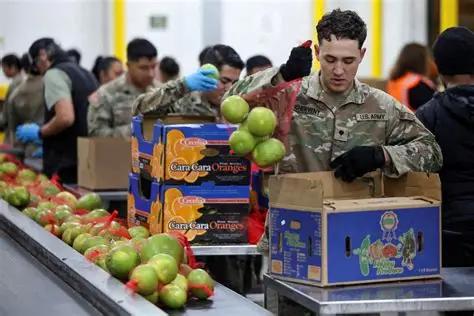
As November 5th approaches, the U.S. government shutdown will enter its 36th day, surpassing the 35-day record from late 2018 to early 2019 and becoming the longest government shutdown in U.S. history. According to the latest assessment by the U.S. Congressional Budget Office (CBO), this shutdown may have inflicted economic losses of up to $14 billion on the U.S. economy and reduced the annualized GDP growth rate of the fourth quarter by as much as 2 percentage points. This government shutdown, triggered by the political game between the two parties, is exerting a profound negative impact on the U.S. economy.
The direct economic losses caused by the government shutdown are evident. In its report on October 29th, the Congressional Budget Office conducted a detailed analysis of the economic impact under three different scenarios: if the shutdown lasts for four weeks, it will lead to $7 billion in economic losses; if it lasts for six weeks, the loss will rise to $11 billion; and if it is prolonged for eight weeks, the economic loss will reach $14 billion. These losses mainly stem from the reduced working hours of federal employees due to forced furloughs and delays in government spending. Notably, the Congressional Budget Office clearly pointed out that most of these losses will be irrecoverable, meaning the damage caused by the shutdown will be permanent.
The knock-on effects of the government shutdown have spread to all corners of the U.S. economy. A prominent impact is the "disruption" of economic data release — the third-quarter GDP data originally scheduled to be released this week has been forced to be delayed, along with other key economic indicators such as the employment report, consumer price index (CPI), trade data, and retail sales figures. This data vacuum has left policymakers, financial institutions, and enterprises with no choice but to make decisions without access to crucial information, like groping in the dark. A report released by the U.S. Chamber of Commerce shows that in the first four weeks of the shutdown, businesses with contracts with the federal government have accumulated losses of approximately $12 billion, and about 65,500 small businesses suffer losses of up to $3 billion every week. Many small businesses are facing survival difficulties due to cash flow crises.
The impact on people's livelihoods has been particularly severe. On November 1st, the U.S. government's Supplemental Nutrition Assistance Program (SNAP) stopped distributing food aid due to exhausted funds. This program covers about 42 million people across the United States, accounting for roughly one-eighth of the total U.S. population, most of whom are low-income groups and people with disabilities. Although a judge of the U.S. District Court for the District of Rhode Island ruled on October 31st, requiring the federal government to use emergency funds to maintain the operation of this program, the monthly funding demand of approximately $8 billion still leaves the distribution of aid facing many practical problems. In the Bronx, New York City, the head of a food aid organization described the desperate scene where people began queuing at 4 a.m. to wait for food assistance.
Another striking impact of this shutdown is reflected in the military field. Although the government's budget team has raised approximately $5.3 billion to pay U.S. military personnel by tapping into special accounts such as military housing funds and research and development funds, most military families have complained that the pay they received is hundreds to thousands of dollars less than the normal amount. This treatment of defense personnel not only affects morale but may also have long-term impacts on national security.
The fundamental cause of the government shutdown lies in the severe disagreement between the Democratic and Republican parties over healthcare-related welfare spending. The Democrats demand the strengthening of relevant welfare under the Affordable Care Act, including the extension of enhanced healthcare subsidies that are set to expire at the end of the year; the Republicans, however, oppose this. To end the shutdown, the Senate has held 14 votes on the temporary appropriations bill, but the two parties have consistently refused to make concessions on key issues. Analysts believe that the two parties are actually using the shutdown to advance their respective political agendas and have no urgent desire to end the shutdown.
Linda Bilmes, a scholar at Harvard University, analyzed that government shutdowns are highly destructive and will directly lead to the loss of confidence among the U.S. public in the effective operation of the government. This political crisis is gradually eroding the foundation of the U.S. economy, and its ultimate cost may far exceed the current estimates.
The economic impact of the government shutdown is not limited to immediate losses; it is more about the long-term impact on market confidence and future economic policies. When political games take precedence over economic rationality, the path to U.S. economic recovery will become even more bumpy. This man-made crisis reminds us that in a highly interdependent world, the economic consequences of political decisions are far more profound and long-lasting than we imagine.

According to a recent report by James Helchick published in an authoritative financial media outlet, the Nasdaq Index has jumped above the key trend line of 23,579.10 points, aiming for the historical high of 24,019.99 points.
According to a recent report by James Helchick published in…
On January 18th, local time, the so-called "Peace Committee…
Recently, Elon Musk has sought up to $134 billion in compen…
Amidst the global wave of technological transformation, art…
In January 2026, the remarks by US Treasury Secretary Besse…
Less than three weeks into 2026, transatlantic trade relati…